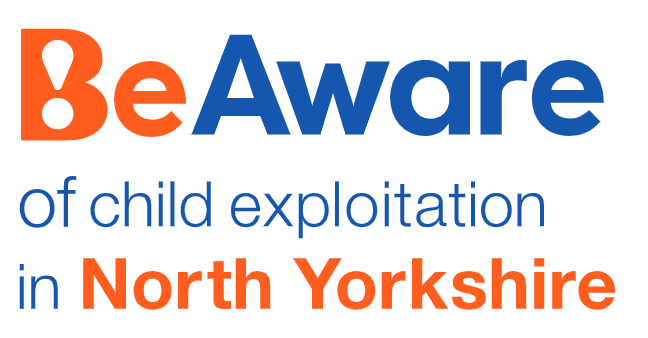
What help is out there?
As a parent or carer with a child or young person who is experiencing exploitation; it’s vital to know that you are not alone and support and advice is available for you. Below is a list of support, resources and information that can be accessed locally and nationally as well as who you can talk to if you are worried.
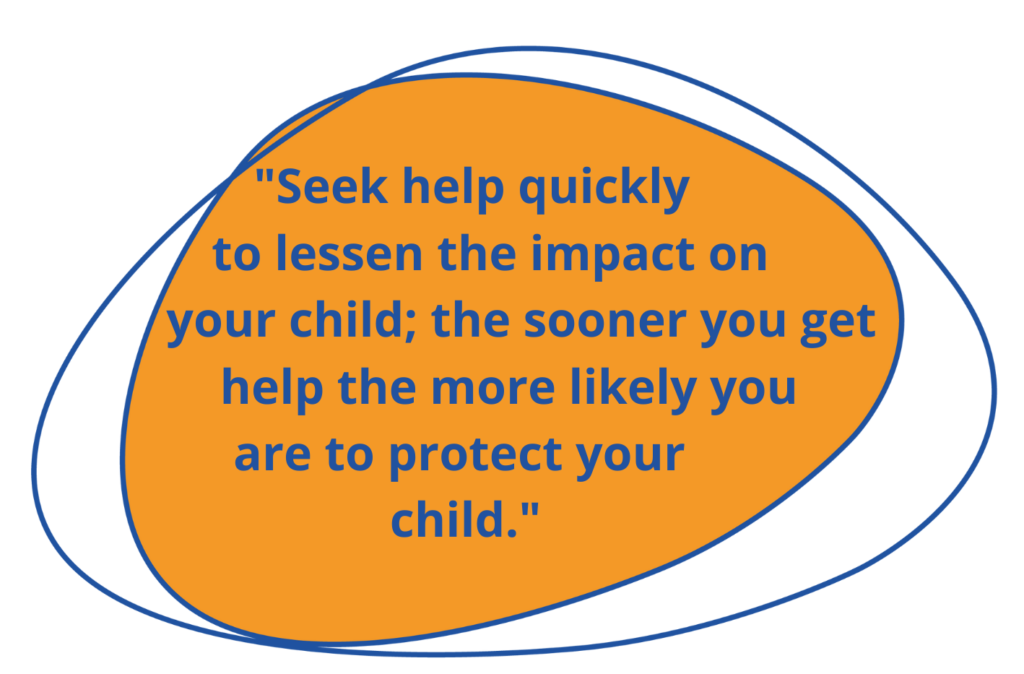
I need help right now:
If you think you or a young person you know could be in immediate danger call the police on 999, or if you have non-urgent information to share with the police, call 101 or contact Crimestoppers on 0800 555 111 or online.
If you are worried about a child’s safety, click onto our do you need some help section to find out which services can help.
Local offers of help:
Anyone can make a referral to the the Children and Families Service. To make a referral you can contact the North Yorkshire Multi-Agency Screening Team (MAST) if you are worried about any child and think they may be a victim of neglect or abuse, whether as a member of the public, or as a professional. Our one minute guide about making a referral to the Children and Families Service can be found here.
To find out more click here: NYSCP (safeguardingchildren.co.uk)
The North Yorkshire and York Trusted Relationships Project is one way in which young people aged 10-17 who are at risk of criminal exploitation are accessing support.
Through the project, young people are assigned to at trained worker to build a trusting relationship with over a long period time and develop skills to protect them from exploitation.
Currently, young people are referred to the project by North Yorkshire Children & Families Service.
To find out more about the service click here.
Age range: 10 – 25 years
Target: Children and young adults at risk of exploitation or frequently missing from home.
SOS+ is an award winning extension to the St Giles’ award winning gangs project. The approach uses trained professionals to equip children and young people to think critically, assess risk and make better life choices, making them more resilient to the risks of becoming involved in gangs, exploitation and violence.
SOS+ puts trained staff with lived experience at the heart of the solution. Having once been involved in gangs, exploitation and violence themselves, staff are imbued with passion and collective desire to ensure the young people they work with do not make the same mistakes they once did.
The service offers:
*Prevention and awareness raising across educational settings
*Parent/carer information sessions
*Professionals/teacher training
*Intensive mentoring for those most at-risk via embedded support in schools and other community settings
*Supporting victims of exploitation
*Support with the impacts of crime and to rebuild the resilience from harms experienced.
Find out more: SOS+ – St Giles (stgilestrust.org.uk)
email: northyorkshireSOSplus@stgilestrust.org.uk
Leaflets available: NYSCP (safeguardingchildren.co.uk), NYSCP (safeguardingchildren.co.uk)
Referral form: NYSCP (safeguardingchildren.co.uk)
Ivison Trust helps parents across the UK, including in North Yorkshire, understand what is happening to their child and how parents are the people who are best to help their child exit exploitative relationships.
Parent Liaison Officers (PLO’s) offer direct one to one work with parents affected by exploitation. The PLO includes parents as partners whilst recognising their needs as a parent of an exploited child. The PLO will formulate co-created safeguarding plans that address the extra familial risk alongside partner agencies and support parents to gather information and intelligence to help partners target and disrupt the offenders and locations. Throughout service delivery the PLO supports the recovery and safety of the child and family.
Below is one parents experience of receiving support from PACE:
“Regaining my power”
When my child was being used and abused by a gang linked to organised crime, it took over my family. I was trying to keep my child safe and get help from services. Whilst there were a lot of agencies involved, their whole focus was on my child and there was little support for me. It felt as if the agencies were at a loss as to what to say to me and at times were quite blaming of me. I felt very alone managing a really tough situation. I started to feel so lost, worn down and as if I no longer had any choices. I started to shut down, close off, give up because I felt so down.
I dread to think what might have happened to us if my guardian angel – the parent liaison officer from Ivison Trust- hadn’t arrived when she did. Her first words to me were, ‘I’m here for you. This isn’t your fault.’ It was life changing to have someone there for me and to start feeling as if there was a way out. I felt this relief, as if a physical weight had been lifted from my shoulders. It gave me a drive again, to have hope and to get back up and keep pushing.
The Pace parent liaison officer (PLO) helped me in loads of ways. She pointed out what I had been doing to keep my child safe and how I’d been trying to work with all the agencies involved. She challenged some of negative attitudes towards me and helped my voice to be heard in meetings. I’d been sharing lots of information and intelligence with the police and it felt very risky to do this because I was terrified that the gang would find out and that there’d be retaliation attacks and risks to our lives. My PLO worked with services to make sure that there were plans in place about how information would be acted upon. My PLO helped me to move areas, which helped my child to find a way out and heal. I, like most parents, needed support in order to support my child. We all need someone on our side.
For more information on Ivison Trust visit their website here: About Ivison Trust – Ivison Trust
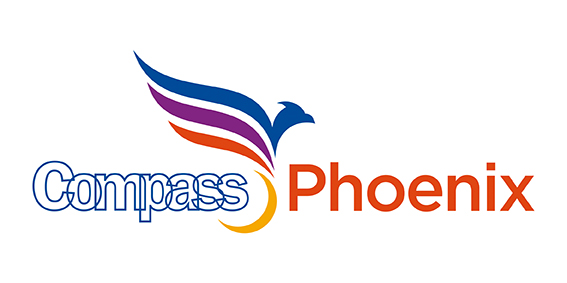
The aim of the Compass Phoenix service is to improve outcomes for children and young people in relation to their emotional wellbeing and mental health by strengthening the range of mental health support available to children and young people.
More information can be found about making a referral on their website here.
Compass offers a confidential text messaging service to young people aged 11-18 across North Yorkshire.
Text 07520 631168 for confidential advice, support and signposting from a wellbeing worker within one working day via text.
When you text BUZZ US, you’ll get a message back letting you know if we’re open or closed. It’ll also tell you what you can do if we are not open and you need help in the meantime.
This might include contacting your doctor, visiting an NHS walk-in centre or calling NHS 111. You can also look up your local child and adolescent mental health service (CAMHS) crisis number. Also remember that if it is an emergency dial 999 or visit A&E.
Text us!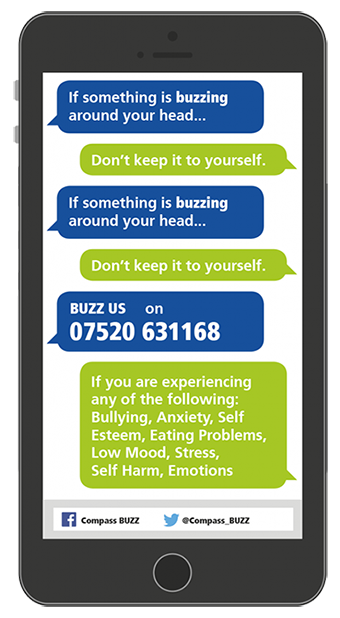
Young people can text BUZZ US about any mental health or wellbeing worries. Such as low mood, stress, eating problem, self harm, anxiety or self esteem.
We will get back to you within a day during the week.
If that feels like too long and you are in need of urgent help or you feel in crisis, please contact the help suggested above and here.
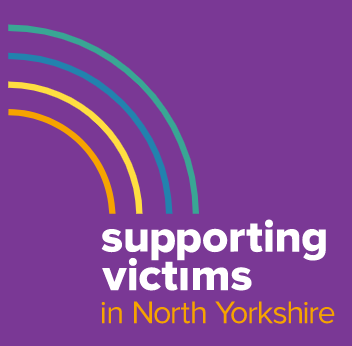
Supporting Victims can provide support for anyone affected by crime, whether reported or not, including victims, bereaved relatives, parents or guardians of victims under 18 and members of staff where a business has been a victim of crime.
We can provide a range of practical and emotional support but if necessary we can also help you access support provided by other organisations.
Emotional and practical support
Over the telephone and/or face to face support by trained and experienced staff
Referral with consent to specialist victim services provided through our partners
Signpost to other support organisations as appropriate
Everyone deals will the impact of crime differently and has their own way of coping, which varies enormously depending on the support you have around you and your personal circumstances.
Our staff are trained and experienced in being able to help you understand what has happened and support you to cope and recover from the experience of crime. Our staff are trained to listen to you and give you advice and guidance on how to get your life back on track.
Often just talking to someone, especially someone independent from your family and friends, can help enormously.
The impact of a crime often isn’t just emotional it can be practical. We also work with a range of other specialist organisations who we can refer you to or you can contact directly.
![]()
Welcome to the home of wellbeing and mental health for young people in North Yorkshire. We’re here to help you find the right help and support for you, to help you stay well, whatever is going on in your life. The Go-To – Emotional wellbeing and mental health (thegoto.org.uk)
Change Direction is a prevention and early intervention support scheme for young people aged 10-17 in North Yorkshire, who may be committing antisocial behaviour or very low level offences, with the intention of diverting them away from the Criminal Justice System.
The Change Direction diversion scheme will engage with young people, at an early stage before criminal behaviour becomes habitual, to improve circumstances for both the young person and also the local community. The young person will be provided with nurture and support, from a dedicated keyworker, in order to begin to address any underlying causes of future criminal behaviour. The young person’s engagement with the Change Direction scheme will be on a voluntary basis.
The overall aims of the Change Direction scheme are to:
Reduce the number of young people entering the criminal justice system as a first-time entrant
Reduce Crime and Antisocial Behaviour incidents in localised areas of North Yorkshire and the City of York
Reduce re-offending by young people
To support young people to make positive progress against their identified needs.
The Change Direction Diversion scheme, provided by North Yorkshire Youth, will be trauma-informed and offer multiple and wide-ranging methods of engagement and intervention, which will be led by the interests of the young person. The support offered will enable young people to work towards goals and achieve outcomes, the intensiveness of the support will be responsive to each young person’s needs.
Key components of the Change Direction scheme
An initial assessment of needs and strengths and the production of a tailored support plan
The offer of one-to-one and group work
Practical support and emotional trauma-informed support where required
Advocacy and support to access specialist services
The delivery of in-house interventions
Referral to existing commissioned services and other specialist services
Planned exit with an offer of peer support
Measurement of progress against identified needs
Community Outreach
The Change Direction scheme will also undertake community outreach engagement and will adopt some of the principles of detached youth work, in order to encourage engagement from young people within local communities. This will be driven by local intelligence and will be informed by any key issues young people may be facing in specific areas.
The community outreach engagement work will have a particular focus on identifying young people from hard to reach groups or communities, for example from BAME or socially isolated rural communities across North Yorkshire and the City of York. As well as those young people that might not yet be known to existing keyworker services, such as the Youth Justice teams, or those who may have fallen through service gaps who are not currently working with keyworker services but may be known to NYP or the Community Safety Hubs.
Referrals to the Change Direction Diversion Scheme
Referrals are welcome from a range of agencies.
Referrals to the scheme can be made via this link. You will be required to enter your email address and then you will be sent an email, click on the appropriate link for the Change Direction scheme. Once submitted, the referral form will go directly to North Yorkshire Youth who will then make contact with the individual to arrange an appointment.
Alternatively you can request a referral form from Clare Yates, Youth Development Manager at clare@nyy.org.uk. Referrals are welcome from a range of agencies including schools/education settings, Community Safety Hubs and North Yorkshire Police.
Referral form and Information sheet can be accesses on the North Yorkshire Youth Site: Change Direction Youth Mentors | North Yorkshire Youth (nyy.org.uk)
Provided by Humankind, the Crossroads Adult Diversion scheme goal is to prevent or intervene early to divert people from the criminal justice process by addressing the underlying causes of their offending behaviour. The overall aims of the Adult Crossroads Diversion scheme are to:
Reduce the number of first-time entrants into the Criminal Justice System
Reduce re-offending and antisocial behaviour
Assess the needs of those on the scheme across the criminogenic pathways and evidence positive progress to address those needs
The Crossroads Adult Diversion scheme works with women and men aged 18+ to offer trauma-informed support to address underlying causes of offending. Each individual will receive a tailored support package, the intensiveness of which will be responsive to their assessed needs. A dedicated keyworker will be allocated who will provide direct interventions, advocate and signpost into specialist agencies where necessary.
The scheme has two elements:
A community-based support scheme, for adult women or men aged 18-25 who may be at risk of entering the Criminal Justice System or are known to North Yorkshire Police. The scheme will engage with individuals, at an early stage before criminal behaviour becomes habitual, to improve circumstances for both them and the local community. Engagement will be on a voluntarily basis. The community-based scheme is open to those who are not offending or have been involved in antisocial behaviour or committed very low level offences. Various agencies may be working with individuals at this stage, and any agency can refer to this element of the scheme. To refer, click on the link below. You will be required to enter your email address and then you will be sent an email, click on the appropriate link for the Crossroads Adult Diversion scheme. Once submitted, the referral form will go directly to Humankind who will then make contact with the individual to arrange an appointment: https://firstlive.orcuma.com/nyp
Referrals can also be made via a referral form and Humankind also welcome self-referrals. To self-refer, request a referral form or for further information contact Alice.Skelton@nyhorizons.org.uk or Humankind.diversionary.services@nhs.net or alternatively call 07939209087.
A Pre-Court Diversionary support scheme, for adult women or men aged 18-25 at point of arrest or voluntary attendance at police custody. This is an alternative to prosecution, and if the individual accepts the referral to the Crossroads Adult Diversion scheme engagement will be mandatory, otherwise the individual may be referred back to North Yorkshire police to face prosecution. Only North Yorkshire Police are able to refer to this element of the scheme. The referral form can be found on Niche and the completed referral form should be sent to Humankind at diversionary.services@nhs.net
National offers of help, information and advice:
Nationally there is lots of information, resources and advice about all forms of exploitation. If you want to know more click on the links.
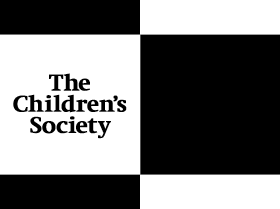
The Children’s Society has lots of further information about criminal exploitation and how they are supporting young people who have experienced or are at risk of experiencing this type of exploitation. To find out more click here.
Ivison Trust is a leading specialist charity that brings the parent perspective to tackling child exploitation.
Ivison Trust seeks to:
Enable parents and carers to safeguard and stop their children being exploited.
Provide evidence and specialist advice in order to demonstrate to partners that parents and carers have an essential safeguarding role.
Work with parents and partners to disrupt and bring perpetrators to justice.
To find out more click here.

CEOP is a law enforcement agency and is here to help keep children and young people safe from sexual abuse and grooming online. We help thousands of children and young people every year who have been in a similar situation to you.
We are here to help and give you advice, and you can make a report directly to us if something has happened online which has made you feel unsafe, scared or worried. This might be from someone you know in real life, or someone you have only ever met online.
To find out more visit the CEOP ThinkUKnow website here.
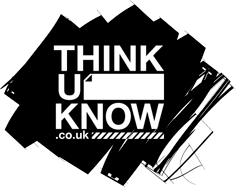
Think U know is part of the CEOP education programme; it offers lots of information and advice for parents, as well as age specific resources for young people.
For more information click here.
What can I do to help?
If you are worried about exploitation or have concerns about your child being exploited it can feel often feel like you are in a daunting and helpless situation, but here are some things you can do:
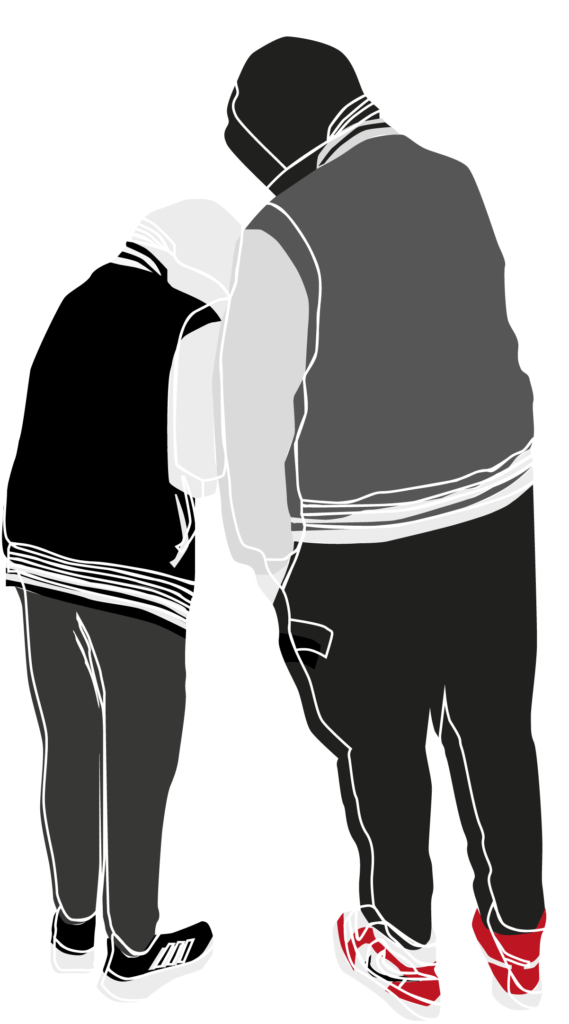
- Learn about the different types of exploitation so that you understand it better.
- Know the warning signs of exploitation so we can disrupt abusers as early as possible.
- Remember you are not alone and there is support available to you and your family.
- Talk to your child about exploitation and how to keep safe. For example keeping safe online and healthy relationships.
- Talk to your child about how to keep safe when they are out with friends and talk through scenarios and what they would do in situations which they may feel uncomfortable or pressured to do something they don’t want to do. Have a safety plan ready so they know who to call and what to say if they need help.
- Reiterate to your child that there are safe adults around them who they can talk to if they are worried (and talk about who they are).
- Be aware that perpetrators target and manipulate young people and they may not be able to identify that what is happening to them is wrong.
- Keep up to date with online technology and keep an interest in what young people are doing online. NYSCP (safeguardingchildren.co.uk)
- Be alert and aware to any behaviour changes – remember to trust your instinct and if something doesn’t feel right, access support.
- Keep a record and log any incidents and concerns you may be having. This will help to build a picture of what is happening.
- If you think someone you know is being exploited, report it to help and protect that child or young person – sharing your concerns could make all the difference to an exploited child. Information about a crime can be reported to the police or anonymously through https://crimestoppers-uk.org/
- Remember that exploitation is a crime; young people are victims but so are the families around them and it can be a very challenging time for all. There are a number of ways ways to take care of yourself during these difficult times and get the support you may need. The better supported you are in this challenging situation; the more able you will be to support your child. e.g. find a trusted person you can speak to, make some time to focus on yourself and your own mental well being. Visit: Mental health – NHS (www.nhs.uk for more information.
FAQs:
You may be reluctant to seek help because you are worried that the police may become involved and your child may be arrested. Whilst the police have a duty to investigate where crimes may have been committed it does not necessarily mean your child will be arrested and detained. Young people who have been exploited are seen as victims of crime and will treated as such.
When there are concerns or worries about the welfare or safety of a child, it is the duty of all to share those concerns with the Children and Families service Multi Agency Screening Team (MAST).
It is good practice that professionals work in partnership with parents and carers to effect positive change. Therefore, it is important that parent and carers are informed of any professional concerns, and consent is obtained for sharing their personal information with Children and Families Service via a referral. It is important to understand what the parents/carers views are of the referral and what support they would like to access. Consent is required for referrals to services such as Early Help and without it, the services available to the family may be limited.
There are some occasions when consent is not required, including:
· If it places the child/young person at significant harm, or
· could delay support.
Once a referral has been made MAST use the ‘Strength in Relationship’ practice model which is underpinned by Systemic Working and Practice, using of Signs of Safety (SofS) to make decisions about contacts in a timely and consistent manner. Appropriate and proportionate multi-agency information is shared, using professional judgement and guided by the Continuum of Need to decide on the best outcome for child and family referral. MAST will contact families or referrers as part of this screening process, to ensure decisions are made collaboratively.
The outcome of contacts are will result in:
· The child does not appear to be a Child In Need, which will result in the provision of information, advice, sign-posting to another agency, and/or no further action,
· Allocation to Early Help Support, or
· Assessment by area safeguarding team as the child appears to be a Child in Need or it is suspected that the child is suffering or is likely to suffer from Significant Harm.
A decision on the contact will be made within one working day of your contact being received. If you are a professional or hold Parental Responsibility for the child, you will be notified of the outcome of your contact by the allocated team, or by the MAST if it has been identified there is no further action for Children and Families Service. To follow up the outcome of your referral or if you disagree with an outcome please contact the Customer Service Centre on 0300 131 2 131 for information.
More information can be found here
If through the referral process a child is identified as being at risk of exploitation, an allocated worker will work with the child, their family and other professionals who are involved, to identify what risks the child or young person may be exposed to and will then completed a Exploitation Risk Assessment containing the views of all involved.
Once completed, the Exploitation Risk Assessment is then sent back to the MAST for a multi-agency view of the risk level and scrutiny regarding the risk management around this child and the contextual safeguarding concerns. This case discussion takes place across partners in the MAST team alongside the allocated worker and any other local professionals required. The meeting will result in an agreement as to the risk level which can be one of four outcomes:
High Risk—Evidence that the young person is being exploited (requires review every 4-6 weeks)
Medium Risk—Evidence that the young persons may be being targeted or groomed for exploitation (requires review (every 6 – 8 weeks)
Low Risk—Vulnerability to exploitation (requires review every 8-10 weeks)
No risk status at this time – Exploitation not currently a factor at this time an appears to be age appropriate behaviours (requires re-submission should further concerns emerge).
The Exploitation Risk Assessment will continue to be reviewed in the MAST within the timescales until all partners are confident the risk has been sufficiently reduced to remove any flags.
The risk assessment and risk management plan will form part of the plan for that child or young person (e.g. Child Protection Plan, Child in Need Plan, Looked After Child Plan or Early Help). It seeks to understand and manage the contextual safeguarding concerns in conjunction with the individual plan for that child.
The MAST may also make recommendations regarding whether the child should be referred into the National Referral Mechanism (NRM) if there is a suspicion that the child has been trafficked or is subject to Modern Slavery. They may also make recommendations about referrals to third sector support provisions for the young person and/or their families/carers
For more information click here.
Whilst you will be probably be feeling very worried, try not to panic. Remember that your child will also be extremely scared, However, this time of turmoil represents a tipping point where even the most highly resistant young person is most likely to be receptive to offers of help. Offer them support, let them know you are still on their side and check out where you can get help.
Further information to support young people around interactions with the police through Stop and Search can be found at: The approach of Y-Stop and why it’s needed | Y-Stop. It focuses on really practical information and tips to help you manage what is often a confusing and stressful encounter, ending it as quickly, confidently and smoothly as possible.
If a child is vulnerable to exploitation the police can help in trying to disrupt the perpetrators.
If a young person is missing from home they are increasingly vulnerable to exploitation. Its important that young people are reported missing to the police. It is commonly thought that you must wait 24 hours before reporting somebody missing, but this is not true. You can make a report to the police as soon as you have done as much as possible to locate your child and that you consider them to be missing. There is no minimum waiting time. Before contacting the police, check to see if they have left you or another household member a message on your phone voicemail, text message or social media.
Head to the Ivison Trust information and advice centre for more information about what happens when you report a child as missing.
When a young person returns home after being reported missing they will be offered a “Return Interview”. This is a chance for them to discuss with a professional the reasons they have run away and look at any additional support that can be offered.
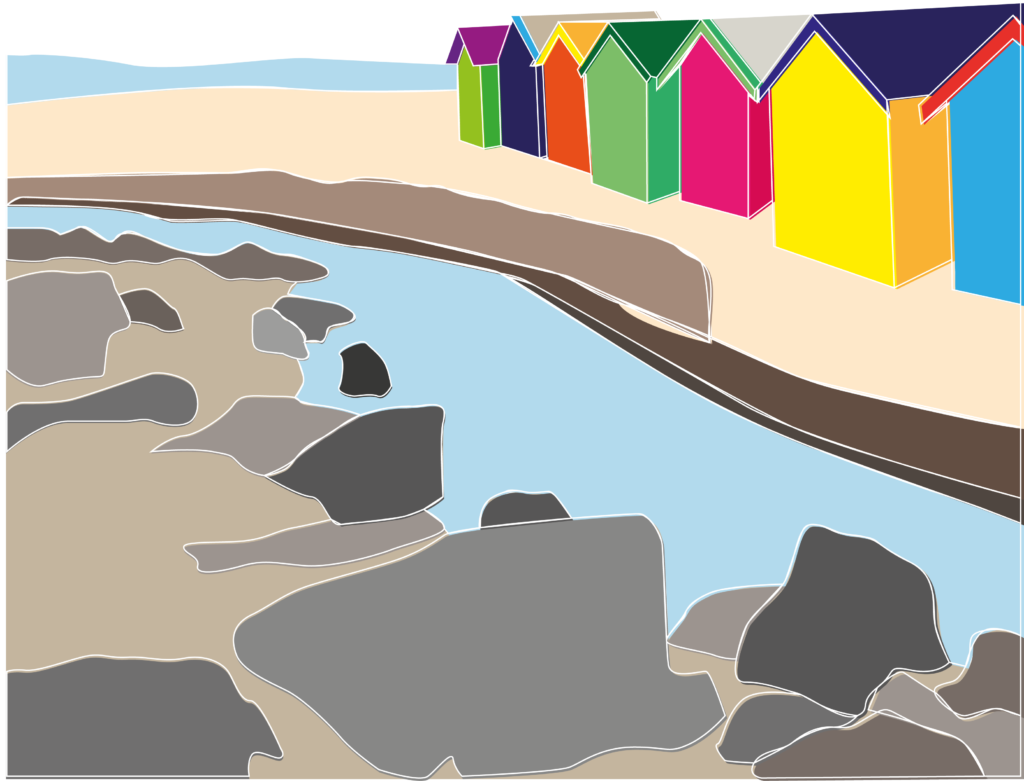




 View all our news
View all our news